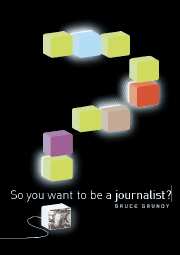Book contents
16 - Ethics and choices
Published online by Cambridge University Press: 05 June 2012
Summary
Reporting what goes on in the world is not necessarily a straightforward, uncomplicated activity. Not everything that happens day to day is simple. Nor are the things that happen necessarily black and white. They may well be quite complex – all manner of shades of grey. Reporting them can be a challenge, given the inevitable limits that exist on time and space. Choosing what to cover is the first issue. Choosing from that what to present is the next. All kinds of things may be left out, sometimes inadvertently, usually deliberately. What should be left out and what should be left in present serious, real and difficult choices at times for the journalist.
Nevertheless, despite the difficulties, journalism is a business in which decisions have to be made, and made smartly. A reporter or an editor might have 10 hours to deadline, which may not feel like much, or he or she might have only 10 minutes. In radio news, deadlines come around every hour. There is no time for long debates about what should or should not be done. This is never an excuse if anything goes wrong. It is just the reality of what happens. So, there is pressure in the business and those who can keep their cool while others around are losing theirs are valuable people to have in a newsroom. Quick decisions are good; quick decisions that are also the right decisions are better.
- Type
- Chapter
- Information
- So You Want To Be A Journalist? , pp. 335 - 342Publisher: Cambridge University PressPrint publication year: 2007



